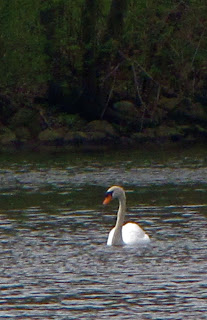
In the context of writing about endings of poems, I said a bit
about Yeats’ “Leda and the Swan” back on July 11, 2011. You don't need to re-read it, but in case you're interested:
I’m revisiting that famous poem today for different reasons, which should become clear in the next post, a day or two from now. At that time, I’ll be looking again at poems that observe things and people, probably in more detail and with more imagination than the average citizen does.
Leda and the Swan by William Butler Yeats : The Poetry Foundation
Surely you now find yourself on the edge of your seat as you await the next post.
I’m revisiting that famous poem today for different reasons, which should become clear in the next post, a day or two from now. At that time, I’ll be looking again at poems that observe things and people, probably in more detail and with more imagination than the average citizen does.
For the moment, here again is “Leda and the Swan” in which
Zeus, disguised as a swan, swoops down and rapes the human woman, Leda. From
that union are born Helen of Troy, the ten-year Trojan War to fetch her her, and then Odysseus’
torturous ten-year journey back from that long victory. That Greek god made one
helluva bird.
Leda and the Swan by William Butler Yeats : The Poetry Foundation
Surely you now find yourself on the edge of your seat as you await the next post.


Yes, I'm on the edge of my seat.
ReplyDeleteLove your photo of the Dogwood flower. I think thats what it is.. We don't have them in Los Angeles.
Milky and swanish
PA, hold on tight!
ReplyDeleteThe tree is Dogwood-ish, but might not have enough rust color on it, so I'm not sure. Maybe an expert will weigh in?